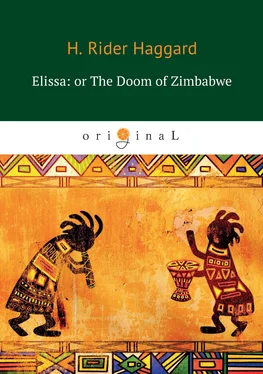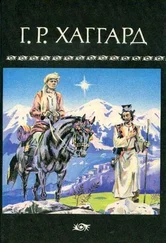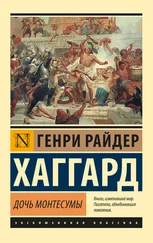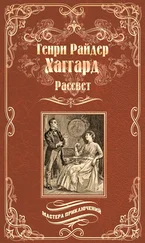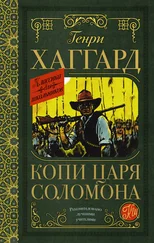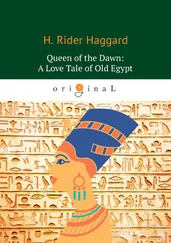In another portion of the square, provisions and stock, alive and dead, were being offered for sale, for the most part by natives of the country. Here were piles of vegetables and fruits grown in the gardens, sacks of various sorts of grain, bundles of green forage from the irrigated lands without the walls, calabashes full of curdled milk, thick native beer and trusses of reed for thatching. Here again were oxen, mules and asses, or great bucks such as we now know as eland or kudoo, carried in on rough litters of boughs to be disposed of by parties of savage huntsmen who had shot them with arrows or trapped them in pitfalls. Every Eastern tribe and nation seemed to be represented in the motley crowd. Yonder stalked savages, naked except for their girdles, and armed with huge spears, who gazed with bewilderment on the wonders of this mart of the white man; there moved grave, long-bearded Arab merchants or Phœnicians in their pointed caps, or bare-headed whiterobed Egyptians, or half-bred mercenaries clad in mail. Their variety was without end, while from them came a very babel of different tongues as they cried their wares, bargained and quarrelled.
Aziel gazed at this novel sight with interest, till, as he was beginning to weary of it, the crowd parted to right and left, leaving a clear lane across the market-place to the narrow gate of the temple. Along this lane advanced a procession of the priests of El clad in red robes, with tall red caps upon their heads, beneath which their straight hair hung down to their shoulders. In their hands were gilded rods, and round their necks hung golden chains, to which were attached emblems of the god they worshipped. They walked two-and-two to the number of fifty, chanting a melancholy dirge, one hand of each priest resting upon his fellow’s shoulder, and as they passed, with the exception of certain Jews, all the spectators uncovered, while some of the more pious of them even fell upon their knees.
After the priests came a second procession, that of the priestesses of Baaltis. These women, who numbered at least a hundred, were clad in white, and wore upon their heads a gauze-like veil that fell to the knees, and was held in place by a golden fillet surmounted with the symbol of a crescent moon. Instead of the golden rods, however, each of them held in her left hand a growing stalk of maize, from the sheathed cob of which hung the bright tassel of its bloom. On her right wrist, moreover, a milk-white dove was fastened by a wire, both corn and dove being tokens of that fertility which, under various guises, was the real object of worship of these people. The sight of these white-veiled women about whose crescentdecked brows the doves fluttered, wildly striving to be free, was very strange and beautiful as they advanced also singing a low and melancholy chant. Aziel searched their faces with his eyes while they passed slowly towards him, and presently his heart bounded, for there among them, clasping the dove she bore to her breast, as though to still its frightened strugglings, was the Lady Elissa. He noticed, too, that as she went beneath the palace walls, she glanced at the window-place of his chamber, but without seeing him for he was seated in the shadow.
Presently the long line of priestesses, followed by hundreds of worshippers, had vanished through the tortuous and narrow entrance of the temple, and Aziel leaned back to think.
There, among the principal votaries of a goddess, the wickedness of whose worship was a scandal and a by-word even in the ancient world, walked the woman to whom he felt so strangely drawn and with whom, if there were any truth in the visions of Issachar and the mysterious warnings of his own soul, his fate was intertwined. As he thought of it a sudden revulsion filled his heart. She was wise and beautiful, and she seemed innocent, but Issachar was right; this girl was the minister of an abominable creed; nay, for aught he knew, she was herself defiled with its abominations, and her wisdom but an evil gift from the evil powers she served. Could he, a prince of the royal blood of the House of Israel and of the ancient Pharaohs of Khem, desire to have anything to do with such an one, he a child of the Chosen People, a worshipper of the true and only God? Yesterday she had thrown a spell upon him, a spell of black magic, or the spell of her imperial beauty, which, it mattered not, but to-day he was the lord of his own mind, and would shake himself free of it and her.
* * *
In the market-place below, the Levite Issachar also had watched the passing of the priests and priestesses of El and Baaltis.
"Tell me, Metem," he asked of the Phœnician who stood beside him, his head respectfully uncovered, "what mummery is this?"
"It is no mummery, worthy Issachar, but a ceremony of public sacrifice, which is to be offered in the temple yonder, for the recovery from her sickness of the Lady Baaltis, the high-priestess."
"Where then is the offering. I see none, unless it be those doves that are tied to the wrists of the women?"
"Nay, Issachar," answered Metem smiling darkly, "the gods ask nobler blood than that of doves. The offering is within, and it is the first- born child of a priestess of Baaltis."
"O Lord of Heaven!" said Issachar lifting up his eyes, "how long will you suffer that this murderous and accursed race should defile the face of earth?"
"Softly, friend," broke in Metem, "I have read your Scriptures, and is it not set out in them that your great forefather was commanded to offer up his first-born in such a sacrifice?"
"Blaspheme not," answered the Jew. "He was commanded indeed, that his heart might be proved, but his hand was stayed. He Whom I worship delights not in the blood of children."
Конец ознакомительного фрагмента.
Текст предоставлен ООО «ЛитРес».
Прочитайте эту книгу целиком, купив полную легальную версию на ЛитРес.
Безопасно оплатить книгу можно банковской картой Visa, MasterCard, Maestro, со счета мобильного телефона, с платежного терминала, в салоне МТС или Связной, через PayPal, WebMoney, Яндекс.Деньги, QIWI Кошелек, бонусными картами или другим удобным Вам способом.
